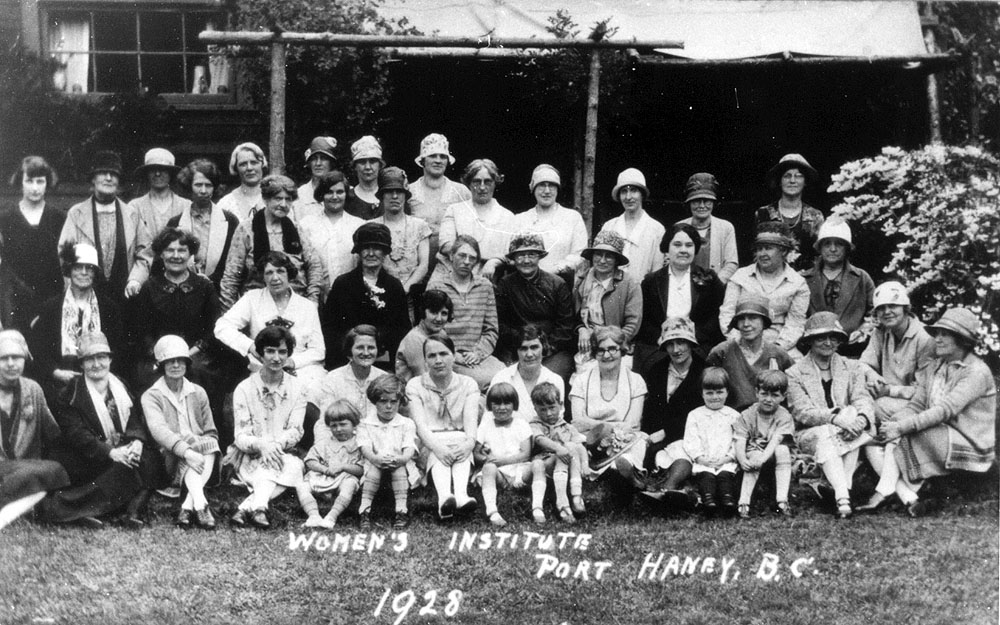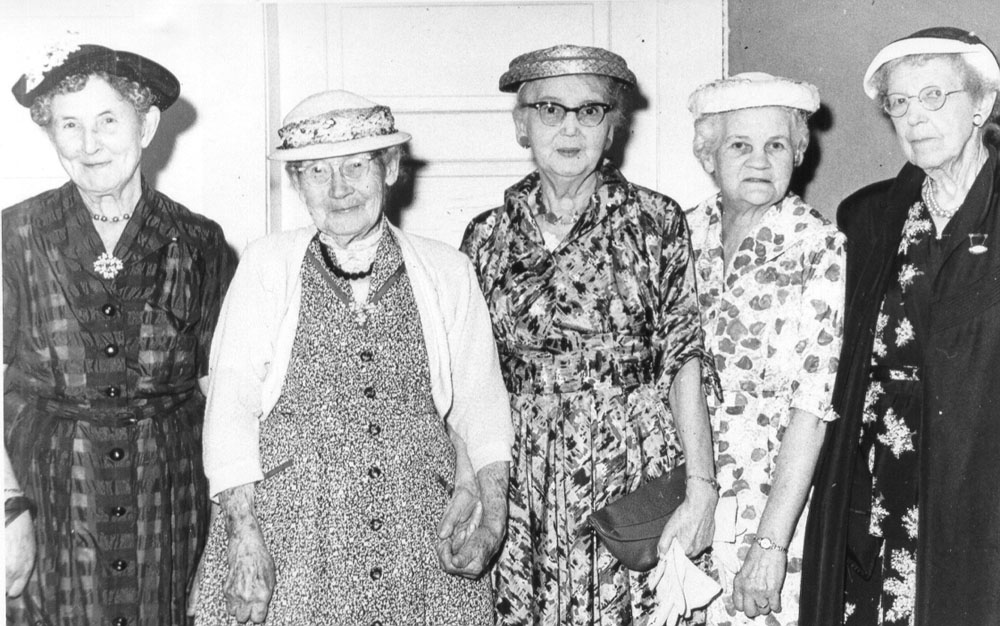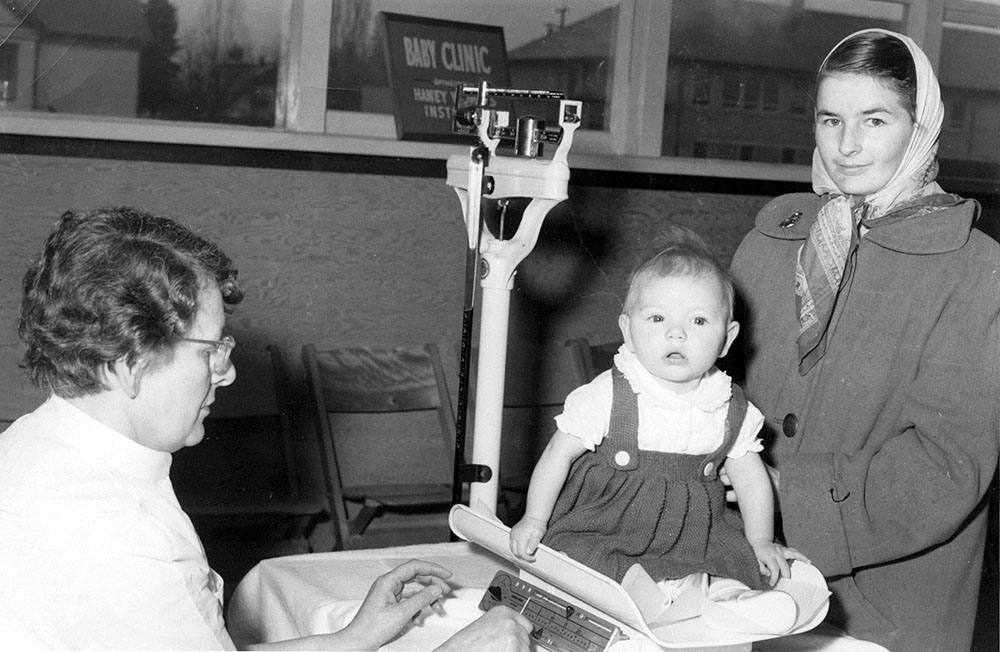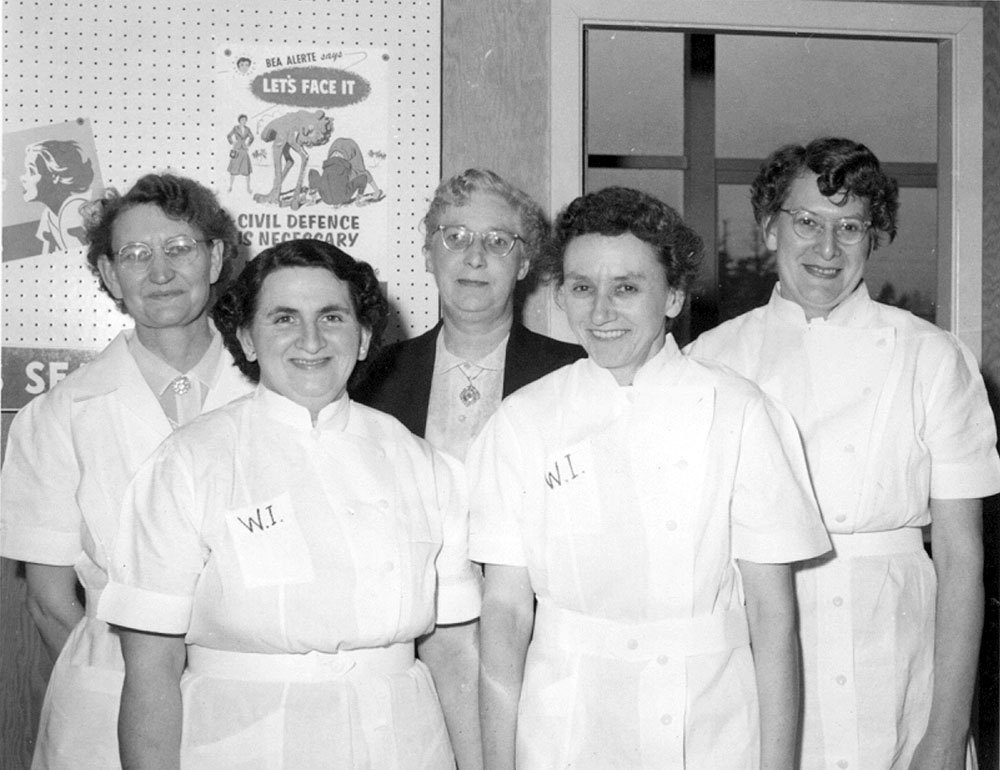
One of the ongoing tasks behind the scenes in the community archives is the transcribing of original handwritten documents to searchable text. This work is primarily done by summer student staff – at least for as long as we have students who can read cursive writing. Later, the senior staff read them over for correct spelling of surnames and older words and that’s where we really get to read the material and think about what it contains. One of last summer’s tasks was transcribing Women’s Institute minute books from 1936 to 1950.
The Women’s Institute movement began in Canada in Stoney Creek, Ontario in 1897. The local Farmer’s Institute had brought in a speaker named Adelaide Hoodless to speak to a group of farm wives. Adelaide had had four children but lost one tragically at 14 months to what was thought to be tainted milk. That was in 1889 and it turned her into a crusader for “domestic science” and what came to be known as “home economics”.
She found a ready audience in that group of farmer’s wives and the first Women’s Institute was born. It quickly spread across the country, most branches affiliated with the British “Country Women of the World”.

In Maple Ridge, there were WI branches in Haney, Hammond and Whonnock. All were deeply involved in community service – care for the needy, especially abandoned and disabled children, and education in new science-informed practices for the home. Much like a modern day food bank/thrift store combination, club members made up packages of food, clothing, bedding, and shoes – sometimes hundreds of them in a month during the Depression.
According to a record compiled by long-time member and past-president Leona Krefting, the WI did its share to:
“beautify the area, planting trees at the cemetery and the municipal park, urging the municipality to purchase park area, and aiding beautification schemes. Since early years, they [took] part in local fairs and the PNE. They organized the first dental clinic, provided transportation for the first public health nurse, started the first library, sponsored TB clinics, sent hundreds of magazines to Allco hospital, contributed prizes for sports days, gave layettes to expectant mothers, sent gifts of clothing, bedding, etc. to needy families, and gave reference books to the high school.”
The Haney group formed in 1915 but sadly, all the early records were lost in a fire at the Oddfellows Hall in 1936. The records in our collection start after that loss and one of the very first topics of discussion was the creation of a Well Baby Clinic. These clinics were springing up across the country for the purpose of providing infant and toddler care, especially for the provision of inoculations.

The clinics were held in community and group halls with no rent charged and they were staffed by doctors and nurses who volunteered their time. It seems they also provided the medication as there is no record of it being purchased by the WI. The WI provided volunteers to set up the clinic – including scales for weighing babies and examination tables – and they did the record keeping. The first doctors involved in Haney were Dr. Sparling and Dr. Broe.
The early minute books record the numbers attending and number of inoculations given. The inoculation material was referred to as “toxoids” which was the generic term for inactivated preparations of bacteria that would confer immunity. By 1937, vaccinations for tuberculosis, diphtheria, scarlet fever, tetanus, and whooping cough were available but the minutes don’t record which one was available at the different clinic days – it may have been that as today, children returned for more than one shot.

The clinics were soon being hosted by Hammond, Whonnock and Ruskin as well as Haney and the program continued with the Women’s Institutes until taken over by Public Health in 1965. Our archival collection includes the clinic records from 1953 to 1965.
The local Women’s Institute branches carried on with a variety of community and charity activities until 1983 when the last branch – the Haney WI – threw its 68th Christmas Party and folded.
Val Patenaude
Maple Ridge-Pitt Meadows NEWS July 10, 2019